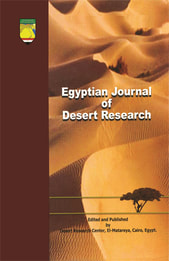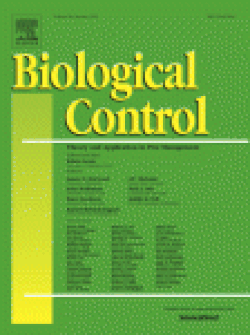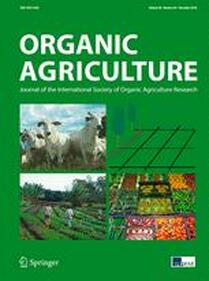 Impact of Compost Tea in Controlling Chocolate Leaf Spot Disease and Soil Microorganisms' Density in Faba Bean (Vicia faba l.) Januray 2018 Egyptian Journal of Desert Research Link Here Living in a desert presents several challenges for agriculture. It's not just the lack of water, but also soils that are low in organic matter, microbial life, and nutrition. The poor growing conditions can lead to weak plants that are susceptible to disease. A research team in Cairo wanted to see how compost tea might help the situation. The farming scientists tested several aspects of tea: They grew disease causing fungi in petri dishes that contained different concentrations of compost tea to see if tea inhibited growth. They also applied tea as a foliar, soil drench, and seed soak to Faba bean plants that were infected with Chocolate Leaf Spot Disease to see if tea reduced disease severity. They looked at growth characteristics of faba bean plants, including dry weight and yield affected by the application of compost tea. They looked at the amount of defense chemicals produced by plants that were administered tea. And they looked at how tea affected the number of microorganisms in the soil. The scholarly gardeners found some very promising results: The Chocolate Spot fungi was inhibited from growing on petri dishes that were treated with compost tea. Foliar spraying tea decreased disease severity by 60%, while soil drenching gave a 50% reduction. Compost tea helped increase almost all measured growth parameters. Soil drenching increased the number of seed pods by 127%, with only a 25% compost tea solution. Soil Drenching caused the weight and number of seeds to increase, this increase led to more than a doubling of the end yield. Microbial life in soil increased by up to 10x as compared to the control. Lastly, the amount of beneficial plant defense promoting chemicals increased in all treatments (by up to 1000%!!!). These internal plant compounds help plants fight off disease naturally. The researchers conclude that Compost Tea could be "suggested as an eco-friendly strategy that could control leaf spot disease". This is yet another study that points to compost tea's ability to help us grow abundant crops while lowering our reliance on synthetic pesticides and fertilizers. To the scientists putting in the time to do these studies, alf šukr!!! (A thousand thanks in Egyptian Arabic).
0 Comments
 Antifungal effects of compost tea microorganisms on tomato pathogens January 2015 Biological Control Link Here Canadian researchers wanted to know if compost tea had any effect on the disease causing fungi, Botrytis and Alternaria. The fungal pathogens are known pests on tomato farms and cause a significant amount of loss to the high dollar crop. To test tea's effects on tomatoes, the scientists brewed up a compost tea that was derived from sheep manure compost. They used a series of laboratory techniques to isolate individual species of microbes in the tea. Then they grew those individual species on petri dishes that also had Botrytis and Alternaria fungal spores growing on them. The scientists looked for the petri dishes of bacteria that inhibited the growth of the fungal spores most effectively. They found the most anti-fungal strains were Bacillus subtilis and Brevibacterium linens. The scientists then took these two beneficial bacteria and tested how they protected actual tomatoes from fungal infection. To do this, they injected tomatoes with both the beneficial bacteria and the disease causing fungus. They did this two ways: the bacteria before the fungus, and the fungus before the bacteria. The reason for the two scenarios was because they wanted to see if there was a preventative aspect to applying the beneficial microbes prior to the introduction of the fungus. They also wanted to see if the bacteria worked better as singular isolates, or if they were more effective when they worked as a pair. The infected tomatoes were then incubated in a warm and moist environment, allowing the bacteria and fungus to do battle. The control group were tomatoes infected with fungus, but given no protective bacteria. At the end of the incubation time the researchers measured the size of the lesions produced by the pestilent fungus. The tomatoes that were treated with the beneficial bacteria prior to fungal infection were in significantly better shape than the ones that were treated after infection. This supports the idea that an ounce of prevention is worth pounds of cure. The research also found that the tomatoes that had both strains of beneficial bacteria were well better off than the tomatoes that were inoculated with only one strain. This lead the scientists to suggest that there is a synergistic effect between the two microbes that act together to suppress fungal growth. This support's TeaLAB's hypothesis that a bio-diverse compost tea is the most beneficial to the garden. The take away message is that compost tea helps reduce disease. It's a low cost, environmentally friendly way to keep a happy garden. Thanks Canadian scientists!  Utilization of compost tea for biochemical response assessment associated with resistance to phytopathogen causing leaf spot in Melicope ptelefoli October 2018 Organic Agriculture Link Here Malaysia's warm temperatures and wet climate create almost greenhouse like conditions that can be great for growing plants, but also great for culturing plant-disease causing fungi. Researchers from Malaysia's University of Technology wanted to determine what affect compost tea had on the growth of the leaf spot causing Grammothele lineata. The test plant was the Asian herb Melicope ptelefolia which is known for it's edible and medicinal qualities. Researchers used two types of teas in the experiment, both were aerated, one of which was supplemented with Molasses. The researchers then made several concentrations of the tea and dipped leaf leaves into it. The leaves were then sprayed with a solution that contained the Grammothele spores. The infected leaves were incubated for a week and then the severity of infection was documented. The leaves were also tested for the amount of naturally occurring plant defense chemicals present in their tissue. What they found was that both teas (with and without molasses) inhibited the growth of the fungal disease by up to 78%. The highest concentration (40% tea by volume) of molasses brewed tea was the most effective. The control leaf, which was sprayed with spores only, was completely infected. Moreover, the leaves that had tea applied to them produced more natural plant defense chemicals (Peroxidase and Polyphenol Oxidase). The tea boosted the plants own ability to fight off disease. This is an impressive new discovery in the compost tea realm, as most literature points to compost tea helping reduce infection through competitive exclusion. This is yet another reason to start using compost tea in your gardens and on your landscape. Thanks Malaysian scientists for furthering our understanding of why this living fertilizer is such a beneficial substance.  Evaluate the effect of compost tea and some chelated micronutrients forms on black cumin productivity January 2019 SN Applied Sciences Link Here The Desert Research Station in Baluza, Egypt had a busy 2018 investigating the efficacy of compost tea on their sandy soils. Research scientists wanted to know what effect compost tea in combination with the chelating agents EDTA and Humic Acid had on the growth of Cumin, a plant valuable as a food and medicine. Chlelators are molecules that hold onto biologically essential micronutrients in such a way that the micronutrients are kept available for plant use. EDTA is a synthetic, slowly to biodegrade chemical that has been shown to have toxic effects on animals, while humic acid is a natural compound that has poses no known risk to natural systems. The scientists had 8 different treatments: Compost Tea Foliar Spray, Compost Tea Soil Drench, EDTA Foliar, EDTA & Compost Tea Foliar, EDTA & Compost Tea Drench, Humic Foliar, Humic & Compost Tea Foliar, and Humic and Compost Tea Drench. The variables that they looked at were: Plant Height, Dry Weight, Weight of Seeds, Oil Percentage, Volatile Oils, and residual Nutrient content in Plants. The 8 treatments were administered twice during the growing season, at 35 and 70 days after seedling emergence. All treatments including the control were fed a conventional fertilizer at recommended rates. The researchers grew some pretty outstanding results. In all treatments there was an increase in all measured variables, however the highest values were seen in the Compost Tea and Humic Acid Foliar treatment. Plant height, dry weight and weight of seeds, oil percentage and volatile oils were to shown to be maximized by foliar spraying compost tea that included humic acid. The next highest values were generally seen in the Compost Tea and Humic Acid soil drench. Across the board it was clear that compost tea and humic acid are beneficial to plant growth. The researchers conclude that compost tea combined with humic acid provides a significant boost to productivity. Humic acid is a viable, safe, and better alternative to EDTA. A big thank you to the cumin cultivating scientists of Beluza, Egypt. |
Archives
June 2024
Categories
All
|
Contact Us
Why TeaLAB?TeaLAB is committed to helping people and their gardens to become more self- sufficient, healthier, and productive. Grow your sweetest corn, your biggest watermelon, your tallest quinoa, your tastiest tomato, and your happiest you.
TeaLAB was founded to teach people how to garden organically, so that we can become more closely connected with the land. Our goal has been to simplify growing methods so that gardeners have a positive experience in the garden. TeaLAB is where the garden meets the laboratory. From around the world and into your backyard, our products contain ingredients that are sourced both locally and globally. Using methods both ancient and cutting edge, TeaLAB promotes maximum biology. Grow with TeaLAB. |

 RSS Feed
RSS Feed
